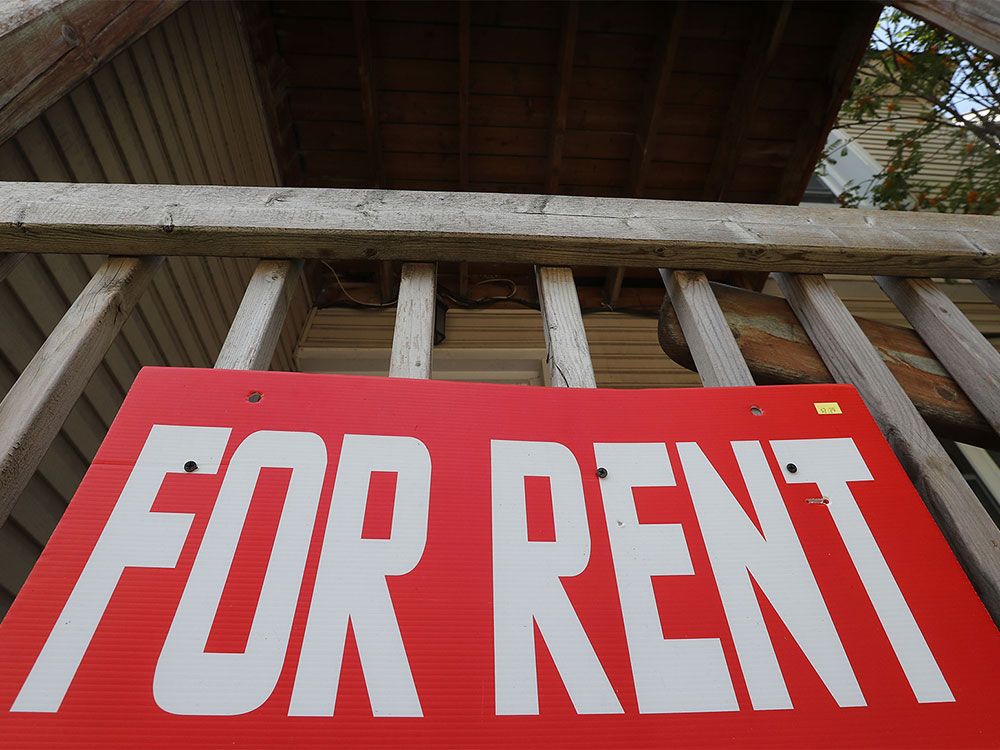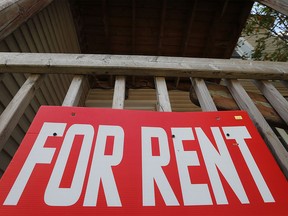Canada’s biggest city challenged to confront its ‘renoviction’ problem

New report calls for change as rents soar at fastest pace since the late 1980s

Article content
The leaders of Canada’s biggest city are being challenged to confront a surge in “renovictions,” a phenomenon that has already caused tensions between landlords, tenants, and politicians in other big municipalities, including Vancouver and Montreal.
Advertisement 2
Story continues below
Article content
Last week, Abigail Bond, the executive director of Toronto’s housing secretariat, published a report that called on the provincial government to tie rent control regulations to units rather than the tenants who live in them, which she argued would make it harder for landlords to jack up rents under the guise of renovations.
“The primary objectives of these activities are to preserve the city’s affordable and mid-range rental housing supply and help support tenants who are at risk of being evicted,” Bond wrote.
Terms such as “renovictions” and “vacancy decontrol” have become part of the local political discourse across the country, as the surge in housing prices has created an incentive to take advantage of the shift in market conditions. For example, rents in Ontario are increasing at the fastest year-over-year pace since the late 1980s, according to Statistics Canada data. Rent jumped 5.4 per cent in June from a year earlier, slower than the 5.6-per-cent gain posted in May, but otherwise the biggest increase since the fall of 1989.
Advertisement 3
Story continues below
Article content

Many provinces have rules in place that limit rent increases. However, one way around those regulations is to renovate a property, and then put it back on the market at a higher rate. Often, existing renters find themselves unable to pay the higher price and are forced to move.
According to Bond’s report, ending “vacancy decontrol” would help curb the financial incentive for landlords to eject long-term tenants. “Vacancy decontrol” is essentially the opposite of rent control; while the law provides existing tenants with a cap on rent increases, there are no restrictions on what a landlord can charge when the unit turns over. Tenant advocates argue that “vacancy decontrol” increases instability for tenants, especially low-income households paying lower rents.
Advertisement 4
Story continues below
Article content
The door is wide open for ‘renovictions’ and we need to shut it
Mike Layton, City of Toronto councillor
“REITS have caused our city to become commoditized,” Toronto councillor Mike Layton said during a debate on Bond’s report on July 22, referring to real-estate investment trusts. “The door is wide open for ‘renovictions’ and we need to shut it. When the rent doubles, it’s a huge loss for our city,” Layton continued. “If we don’t stop the commoditizing of housing, then the rent will only continue to rise. (Bond’s) report moves us forward.”
Mayor John Tory’s office didn’t return a request for comment on the Bond report, nor did a spokesperson for Ontario Housing Minister Steve Clark.
Canada is facing an acute housing affordability and supply crisis. According to a joint report by Urbanation and the Federation of Rental Housing of Ontario, rental apartment supply from purpose-built units and secondary condominiums is projected to fall short of demand by over 200,000 units — even if construction starts double in 10 years.
Advertisement 5
Story continues below
Article content
Major cities such as Toronto and Vancouver rely heavily on the private market to provide mid-level housing, and the “renoviction” phenomenon has resulted in fewer affordable homes on the market.
Robert Patterson, a spokesperson for the Tenant Resource & Advisory Centre (TRAC) in British Columbia, said he has seen the negative effects of “renovictions” due to “vacancy decontrol,” observing that, “B.C. has experienced a ‘renoviction’ crisis and the problem is that it can affect so many tenants at once. Often dozens of people (living in a building) are evicted at once for renovations.”
However, policy can correct the issue, Patterson said. As of July 1, 2021, British Columbia’s Residential Tenancies Act (RTA) makes “renovictions” tougher for landlords by forcing them to apply for permission from the Residential Tenancy Branch (RTB), introducing some bureaucratic friction that creates a disincentive to make cosmetic improvements simply as an excuse to hike the rent.
Advertisement 6
Story continues below
Article content
Ontario law allows landlords to evict tenants if they are undertaking major renovations on a unit, and there is no rule that bars landlords from raising the rent between tenants.
Although Patterson said that he has seen fewer “renovictions,” he has observed an increase in renters receiving RTB-32 notices, which allow landlords to evict tenants to make way for a relative or person who will be providing care for another resident of the building.
“Whenever there is an incentive to move out tenants, landlords will take the necessary steps to do that,” Patterson said. “It’s not about the type of evictions when there are a number of loopholes. The policies should match the incentives.”
Back in Toronto, councillors appeared to support the thrust of Bond’s recommendations, but some argued that a framework that protects both the tenants and the properties is necessary.
Advertisement 7
Story continues below
Article content
“We need to tackle both ends,” said councillor Ana Bailão, as critics of vacancy control suggest landlords need an incentive to maintain and upgrade properties. “We need to ensure that stock is in a state of good repair and at an affordable moderate rate for the people of Toronto.”
But city councillors are not the only ones taking the government to task. In a press release this week, Jessica Bell, the Ontario New Democratic Party’s housing critic, said the lack of oversight in the housing ministry is contributing to skyrocketing rent prices. Bell advocates legislation that would ensure that new tenants would be able to pay the same rent as their predecessors.
-

Cancelled Toronto property listings surge as prices come off the boil
-

Nowhere to live: Frantic demand for homes-to-buy shifts to homes-to-rent
-

Toronto offers glimpse of housing pain as renovations slow down
Advertisement 8
Story continues below
Article content
For existing tenants, Ontario’s rent control system permits annual rent increases based on the Ontario consumer price index (CPI), which the province recently doubled to 2.5 per cent for next year. Increases greater than that must be justified and approved by the Landlord and Tenant Board. When the unit is vacated, there are no limits on how much rent the landlord can seek.
In Ontario, landlord applications to evict tenants for reasons other than failing to pay rent increased by nearly 100 per cent between 2014 and 2020, while applications to raise rent on current tenants beyond what’s allowed under rent control rules rose by nearly 40 per cent, according to data from the Landlord and Tenant Board.
While “creating new supply is crucial, there’s a parallel need to protect the affordable housing that already exists,” Bond said in a press release alongside her report. “That means taking a holistic look at what’s driving costs upwards.”
Financial Post
Advertisement
Story continues below









